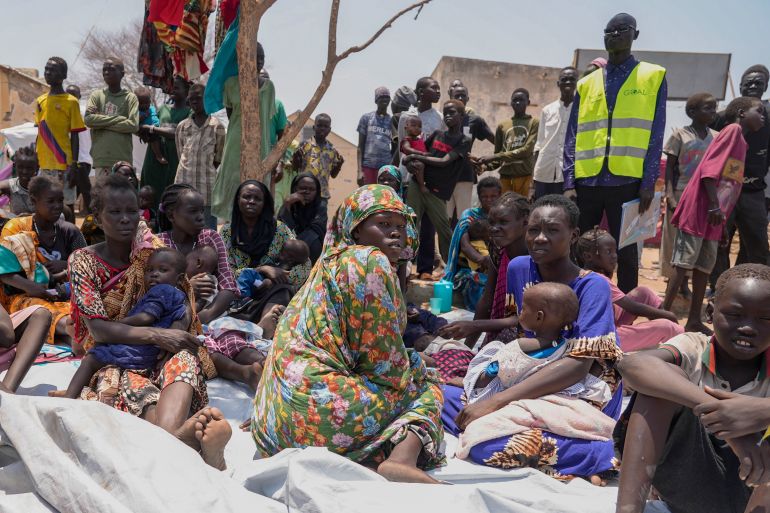Source: UN reports 35 percent increase in people affected by South Sudan violence
New report says civilians are bearing the brunt of a surge in intercommunal conflict in pockets of South Sudan.

Published On 19 Mar 202419 Mar 2024
The number of people affected by violence in South Sudan surged by 35 percent in the last three months of 2023 due to intercommunal conflict, the United Nations has said.
The UN Mission in South Sudan (UNMISS) documented 233 incidents of violence affecting 862 people. In a report released on Monday, it said 406 people were killed, 293 were injured, 100 were abducted and 63 were subjected to conflict-related sexual violence.
KEEP READING
list of 4 itemslist 1 of 4
Photos: Inside South Sudan’s worsening refugee crisis, in Renk and Maban
list 2 of 4
Sudanese democracy should not be US-made
list 3 of 4
UN official warns of possible war crimes, rape as a weapon in Sudan
list 4 of 4
Photos: Sudanese refugees face gruelling wait in crammed South Sudan camps
end of list
There was a 35 percent increase in the number of victims reported from the previous quarter.
The report also said that intercommunal violence by community-based militias or civil defence groups accounted for 86 percent of all civilians affected.
More than half of those affected by the violence were caught up in retaliatory attacks related to the border dispute between rival factions of the Dinka ethnic group – the Twic Dinka from Warrap state – the main hot spot for conflict – and the Ngok Dinka from the oil-rich region of Abyei, with 263 killed and 186 injured, the report said.
“Intercommunal conflict continues to cause immense harm to communities across the country,” Nicholas Haysom, the head of UNMISS, said.
South Sudan is to hold elections later this year, the first since a 2018 peace deal between President Salva Kiir Mayardit and his former rival, Riek Machar, that ended a five-year conflict that killed hundreds of thousands.
Violence caused by ethnic tensions and disputes over resources such as land has increased in various parts of the country in recent months, particularly in Abyei.
Straddling an ill-defined border between Sudan and South Sudan, Abyei has been claimed by both countries since South Sudan declared independence from Sudan in 2011.
Haysom urged the South Sudan government to intervene and “resolve underlying grievances and build peace”.
